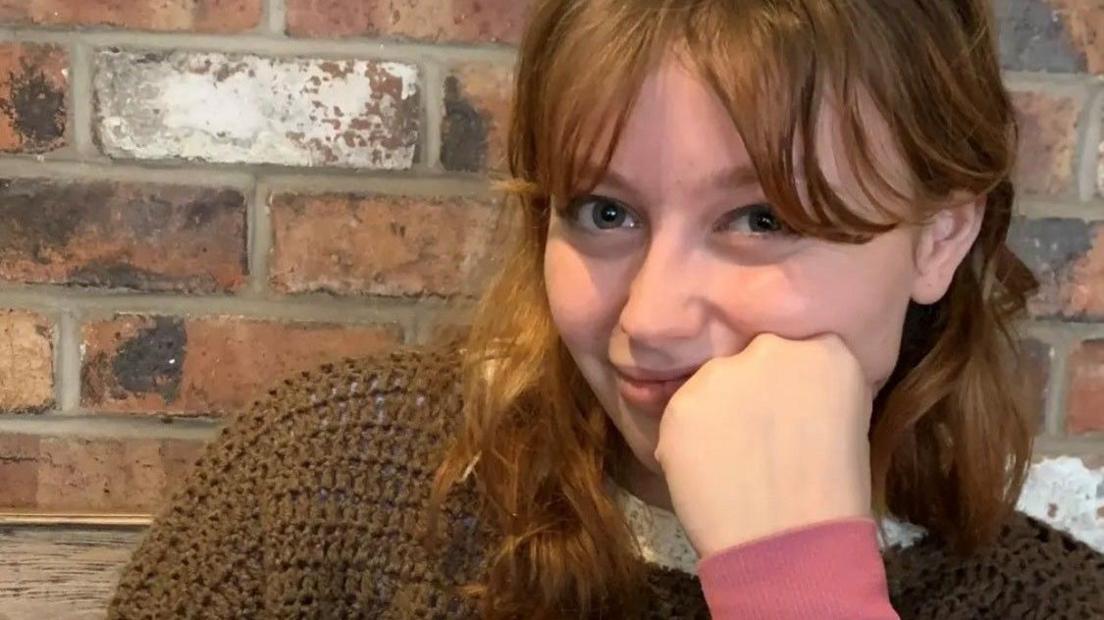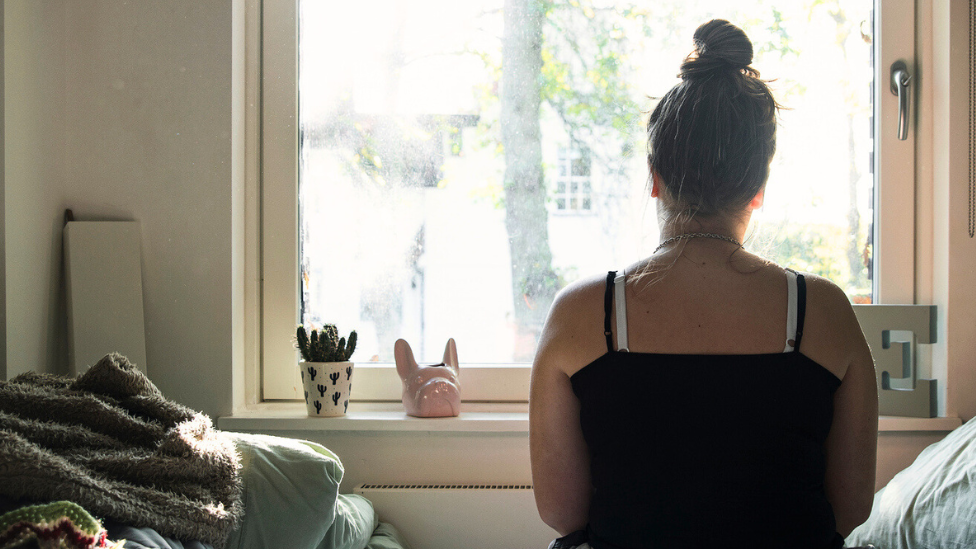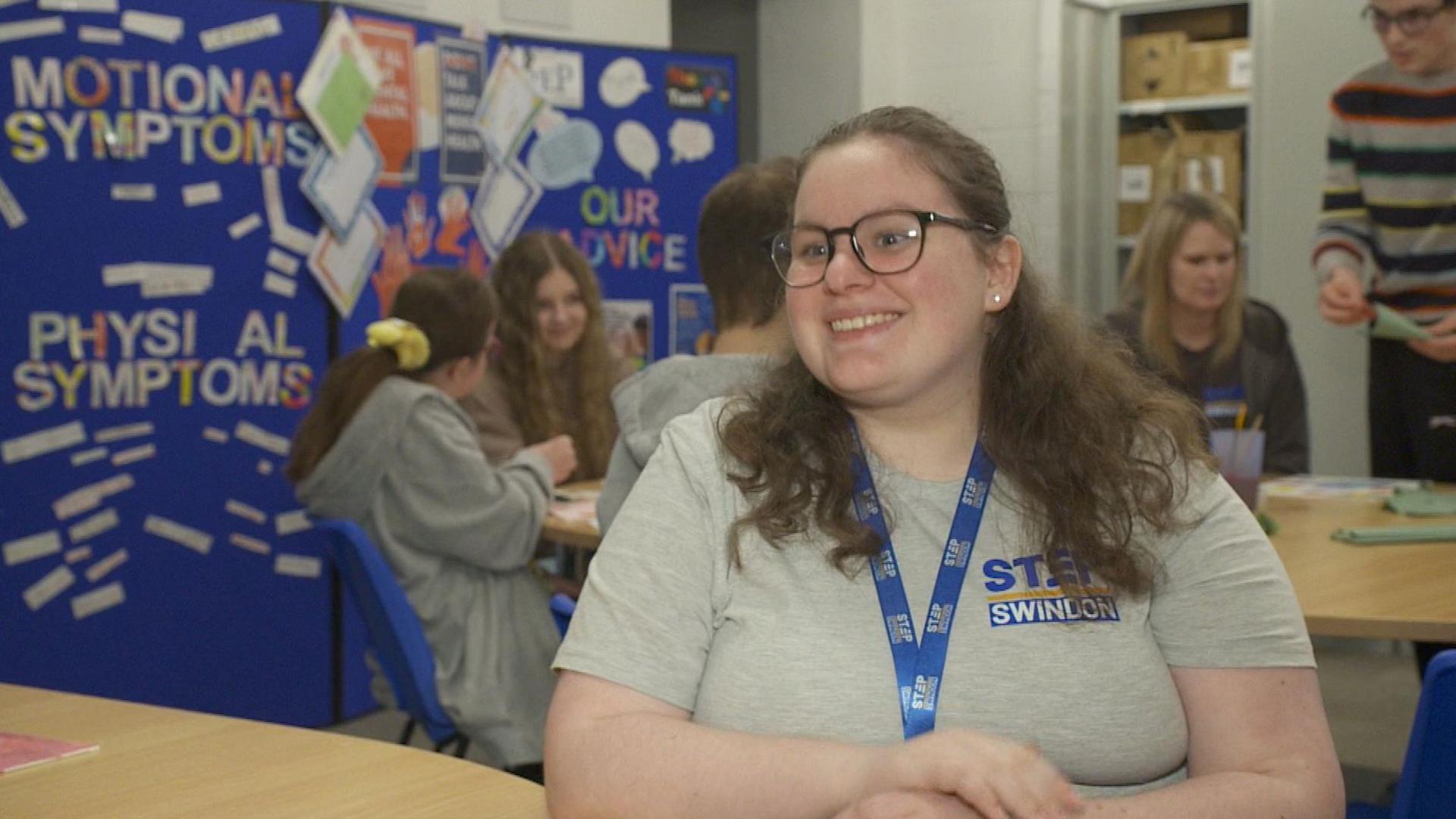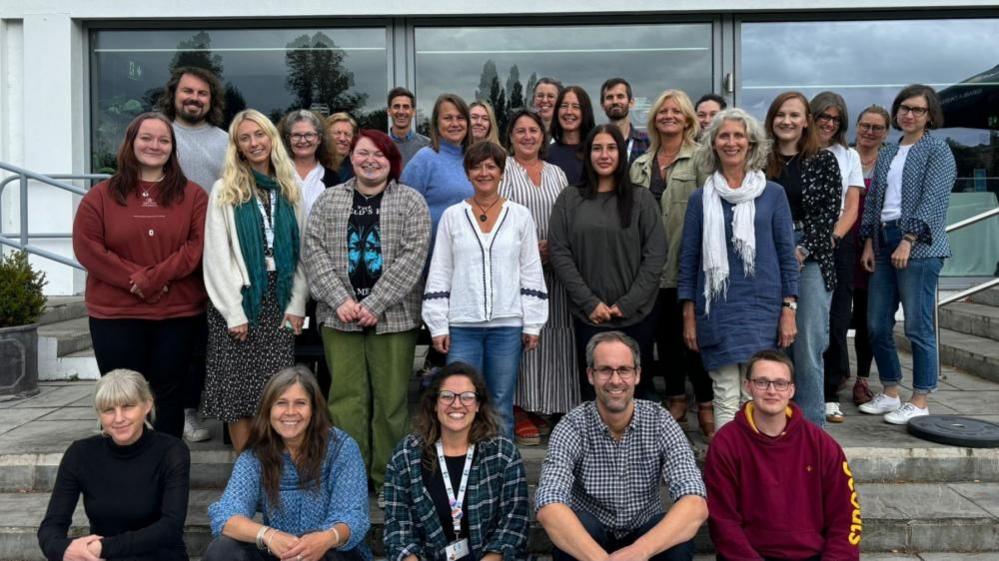Trial to help teens with anxiety and depression

Kat Nellist makes sure young people's feelings are considered throughout the Attend project as it all "needs to be teenager-centred"
- Published
A student who has experienced anxiety and depression since she was a child hopes a new "teen-friendly" mindfulness therapy could help others.
Kat Nellist, 25, from south-east London, has helped design a therapy tailored for teenagers to help them cope with increasing levels of depression and mental health problems.
The Attend study aims to recruit 480 teenagers and their parents to take part in assessing the impact of mindfulness therapy.
Trials for the programme will take place in London, Devon, Sussex, Nottingham, Oxford, Cambridge and Peterborough.

Kat Nellist said the Attend team was recruiting teenagers experiencing depression or low mood who have had treatment but have not fully recovered
Ms Nellist, who is studying for a degree in psychology at Goldsmith’s, University of London, said that by the time she was eight she was receiving counselling and "couldn’t remember a time where I didn't have [anxiety and depression]".
She received a formal diagnosis in her pre-teens and tried therapies including cognitive behavioural therapy (CBT).
She said CBT was about distancing yourself from your thoughts and not letting them control your feelings.
But it was mindfulness-based cognitive therapy (MBCT) that helped reduce her anxiety.
She said: "It teaches you to think, 'That's a really sad thought, but I'd rather attend to the thing I'm busy doing... I don't need to get pulled down that little spiral and I can actually continue enjoying my coffee'."
'Slip through the cracks'
Ms Nellist has learnt to live with her negative thoughts and said she hoped her experience could help others as "teenagers can often get neglected".
"There's a lot of help for young children and a lot of help for adults, but sometimes when you’re in your mid-teens you can slip through the cracks a little bit," she said.
"It's an important time to intervene... If we can get in early then we can save people future pain and give them more support."

Kat Nellist has high hopes for the course, which will involve teenagers attending eight weekly sessions either in person or online
Prof Tamsin Ford, the head of psychiatry at the University of Cambridge, said too many young people struggled with their mental health and failed to get the support they needed through the NHS.
She hoped adapting MBCT to make it more engaging and effective for teenagers could improve things.
The University of Cambridge, King’s College London, and the Universities of Exeter and Surrey developed Mindfulness for Adolescents and Carers, a programme based on MBCT.
"Although our main goal is to see whether our mindfulness course can help teenagers recover from low mood or depression and prevent relapses, we're also interested in the benefits it might provide to their carers," said Prof Ford.
"Equally importantly, we want to see whether this approach – if effective – could be integrated into NHS services.
"This would ensure that it's accessible to many more teenagers who are struggling with their mental health."
The Attend programme, funded by the National Institute for Health and Care Research was developed by teams at the University of Cambridge and King’s College London.
Get in touch
Do you have a story suggestion for Cambridgeshire?
Follow Cambridgeshire news on BBC Sounds, Facebook, external, Instagram, external and X, external.
More like this story
- Published13 November 2024

- Published13 November 2024

- Published14 November 2024
